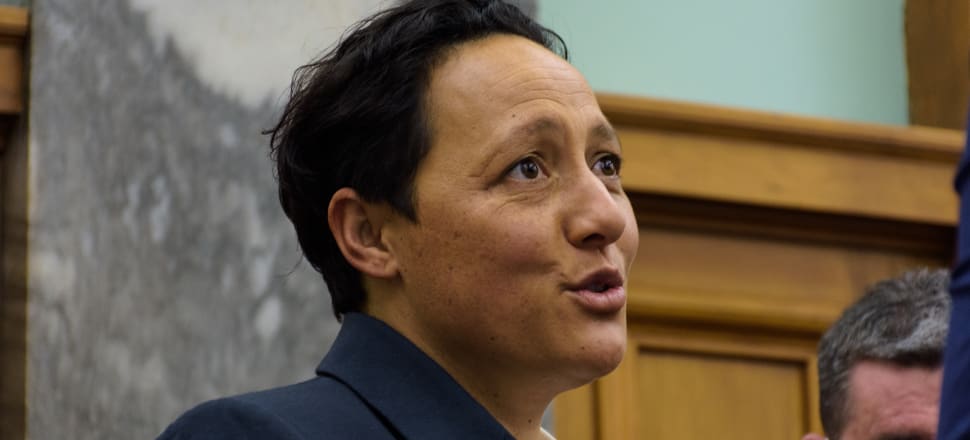
Critics say terrorism laws are being broadened with each successive change, and even the Justice Minister is uncomfortable with the constant tinkering
Special powers to limit the freedoms of terror suspects will now be broadened for the second time, less than three years after they were first introduced.
The law changes proposed by the Government last week have the backing of National and ACT, while the Greens have yet to decide. Even those supporting the legislation are cautious, however, with Justice Minister Kiri Allan saying the constant tinkering isn't "appropriate".
The control orders regime allows the Government to restrict the movement, communications and activities of individuals who pose "a real risk of engaging in terrorism-related activities in a country" with the approval of a High Court judge. People who the Government believes engaged in terrorist activities overseas (even if never charged or convicted) are eligible as are people who in New Zealand have been convicted of terrorist offences or of making, possessing or distributing terrorist publications.
Evidence standards to prove eligibility for control orders are lower than in criminal court. The list of possible orders is extremely broad, ranging from prohibiting individuals from leaving the country to preventing them to communicating with particular people to restricting internet access. They can also be made to report to police regularly, to live in a particular place and to be subject to electronic monitoring.
Allan's announcement of changes to the control orders regime on Wednesday marks the second time it will be altered since its introduction at the end of 2019, amid fears that New Zealanders returning from battlefields in Syria couldn't legally be restricted.
Legislation was passed under urgency but narrowly applied only to foreign fighters - explicitly described as targeting only "a small number of people who are returning to, or who have arrived in, New Zealand after having engaged in terrorism-related activities overseas".
At the time, a political kerfuffle saw the National Party flip from supporting to opposing the bill and the Greens jump the other way. Both parties and independent commentators criticised the pace at which it was rushed through Parliament.
Further changes to the regime were announced in early 2021, including expansion to apply to people within New Zealand who had been convicted of terrorism-related offences. After the September 3 LynnMall terror attack in Auckland, that bill was also accelerated. Ultimately, National and Labour backed it while the minor parties voted against it.
Then-Justice Minister Kris Faafoi and Prime Minister Jacinda Ardern both conceded that the 2021 changes to control orders and other parts of the country's terrorism law had been aimed at situations like that of the September 3 terrorist. Because he hadn't been a foreign fighter, the Government was limited in how it could curtail his movements and actions.
The changes announced last week will expand the number of people potentially eligible to be subject to control orders further still. Now, those who have been convicted of making, possessing or distributing publications banned by the Chief Censor for extreme violence, torture and cruelty could be subject - a step up from the current application to those who spread banned publications specifically about terrorism.
As with anyone who faces control orders, the Government would still need to prove to a High Court judge that these people pose a risk of engaging in terrorism.
Judges will also have more discretion in setting the terms of control orders.
ACT Party leader David Seymour, who said he was leaning towards backing the changes, still had qualms about the pace of change to the restrictive regime.
"You make these laws for the worst of the worst. Once you make the law for one purpose, the law has to apply equally to all," he said. "We have to ask ourselves, would we want laws that we've dreamed up to really stick it to that person that deserves it to really apply to every other New Zealander?"
The Green Party's justice spokesperson, Golriz Ghahraman, told Newsroom her caucus still had to meet to decide a position on the legislation. She noted the Greens did vote against the 2021 changes but the scope for these was narrower.
Constant changes to the law weren't inherently problematic, she added.
"I'd rather we, in the ridiculously changeable world of the ways that terror entities work online for example, be more receptive to change. There is a good point in this as well because sometimes we make these clunky pieces of legislation and don't respond to needs for change."
Amnesty International's campaigns director Lisa Woods said the organisation has "ongoing concerns about the slow scope creep of terrorism legislation in Aotearoa New Zealand, including with control orders.
"We understand that the purpose of control orders was at least initially to manage and monitor a 'small number of people' who are not able to be criminally prosecuted for their activities due to difficulty gaining evidence. However, since then we have seen control orders slowly expanded, and we are concerned that this has occurred without adequate scrutiny of human rights implications and whether such expansions are justified or warranted."
While select committee processes for the 2019 and 2021 bills were abridged, Woods urged the Government to allow for a "meaningful opportunity for a diverse range of voices to engage with the new Bill".
Even Allan herself worried about the continual expansion of the scope of the control orders regime.
"It's certainly a question I've raised, and obviously I've been in the role for four months. Since the introduction of those control orders, to see them amended three times in a three-year window, I think does point to the fact that there needs to be a review to make sure that they are indeed sitting as appropriately as they should," she said.
"I don't think it's an appropriate way to keep coming back to bite at the cherry every year."
A review of the regime will kick off next year but the minister couldn't say when it might conclude.







